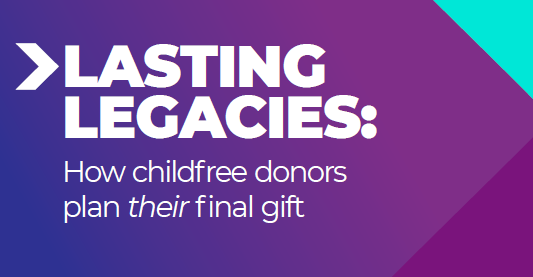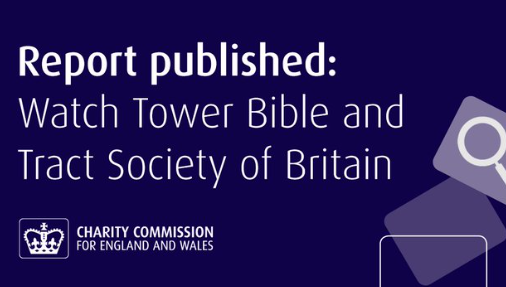A report is recommending new strategies to target people without children, who are far more likely than parents to leave gifts to good causes in their will.
Childfree people are more likely to leave a gift to a charity in their will if they can see the benefits of their generosity during their lifetime or know it will be used immediately after their death, a report has found.
Instead of “vaguer, long-term goals”, those without children are more likely to understand “the specific and immediate impact of their gift”.
Charity legacy teams are being urged to review the way they target this potentially lucrative legacy market of Britons without children, who separate research by Legacy Foresight suggests are three times more likely than parents to leave gifts to good causes in their will.
This legacy gap between parents and childless people could be even greater. Childless couples are four times more likely to leave a charitable gift to wills than parents, according to further research carried out in Australia.
The advice is based on interviews with 12 childfree people aged between 30 and 65 and has been revealed in a report published by consultancy WPNC.
This found that while fundraising often focuses on the long-term impact of donations and legacy gifts, for “childfree audience that’s less important”.
“Understanding the specific and immediate impact of the gift on their death rather than vaguer, longer-term goals is appealing,” the report found.
“They also need certainty their gift will make an immediate impact, and definitely not be wasted.”
Those interviewed by researchers also had “a desire to finish their charitable actions at the point of their death: not a long-term impact, but a conclusion to their personal mission”.
This suggests that “control counts” for childfree people and charities should consider “pushing into their focus on the here and now”, according to WPNC.
“A sense of control could be powerfully motivating. After all, this group is more likely to be making decisions about legacies today rather than waiting until they are much older. One option is asking for restricted gifts that can be spent immediately upon death,” the report recommends.
One 47-year-old childless person interviewed said: “I don’t have anybody to leave it to... maybe I won’t leave anything at all. I would rather use it for something while I’m alive, doing something fun, or worthwhile.”
Other advice from WPNC for charities is to encourage childfree people to discuss legacy intentions with friends and family and offer free will writing services.
“The more communication around estate and death planning happens, the more it creates opportunities for a conversation around wills and legacies beyond the standard gifts to family,” said WPNC.
According to research by Legacy Foresight 8% of UK adults over 50 with children leave a gift to a charity in their will, but this proportion increases to 24% for those without children.
You gov has found that more than a third (37%) of adults who are not already parents say they never want to have children and a further fifth (19%) say while they don’t want a family now, they may change their minds in the future.
“Childfree lives have recently come to the fore with some high-profile celebrities and media personalities alike sharing their experiences of choosing not to have a family,” said WPNC legacy and international marketing director Gail Cookson.
“It is an issue that divides opinion across society – and has implications for charities’ fundraising strategies.
“These potential donors are planning to make a specific and intentional impact with their estate; whether that’s acts of charity around people they know, or to provide for animals like those they’ve cared for or contributing to the missions of a specific charitable organisation that’s personal to them.”
Latest News
-
Tributes paid to 'tenacious campaigner' who co-founded Terrence Higgins Trust
-
Man who set up fake animal charity jailed for five years
-
X-odus sparks video content boom among charities, report finds
-
Liz Turner: How a connected digital ecosystem transformed our volunteer experience
-
Charity handed £25m endowment from autistic philanthropist to help others on the spectrum
-
Civil Society Covenant blighted by delays and U-turns, report warns
Charity Times video Q&A: In conversation with Hilda Hayo, CEO of Dementia UK
Charity Times editor, Lauren Weymouth, is joined by Dementia UK CEO, Hilda Hayo to discuss why the charity receives such high workplace satisfaction results, what a positive working culture looks like and the importance of lived experience among staff. The pair talk about challenges facing the charity, the impact felt by the pandemic and how it's striving to overcome obstacles and continue to be a highly impactful organisation for anybody affected by dementia.
Charity Times Awards 2023
Mitigating risk and reducing claims

The cost-of-living crisis is impacting charities in a number of ways, including the risks they take. Endsleigh Insurance’s* senior risk management consultant Scott Crichton joins Charity Times to discuss the ramifications of prioritising certain types of risk over others, the financial implications risk can have if not managed properly, and tips for charities to help manage those risks.
* Coming soon… Howden, the new name for Endsleigh.
* Coming soon… Howden, the new name for Endsleigh.
Better Society

© 2021 Perspective Publishing Privacy & Cookies














Recent Stories